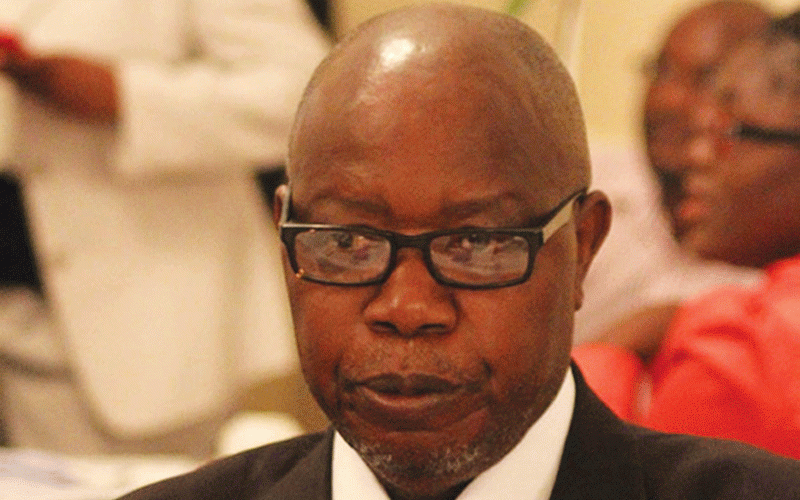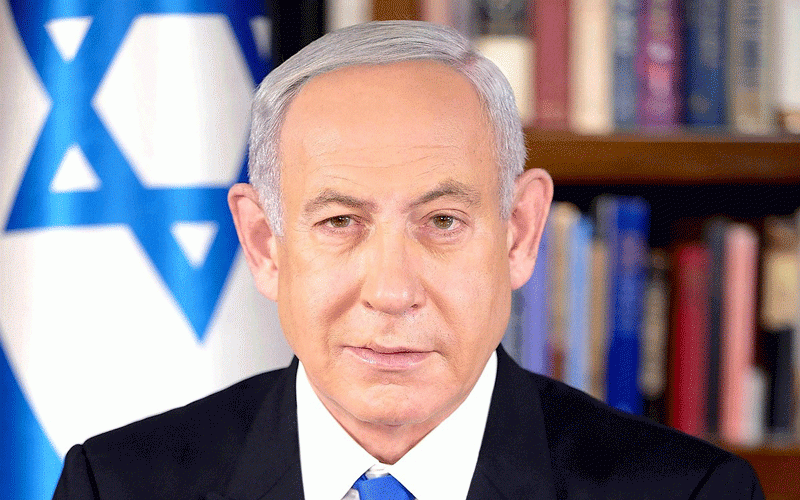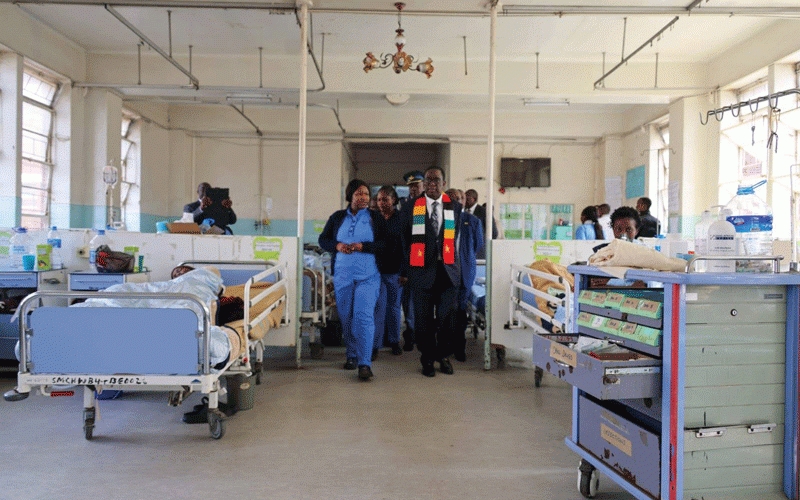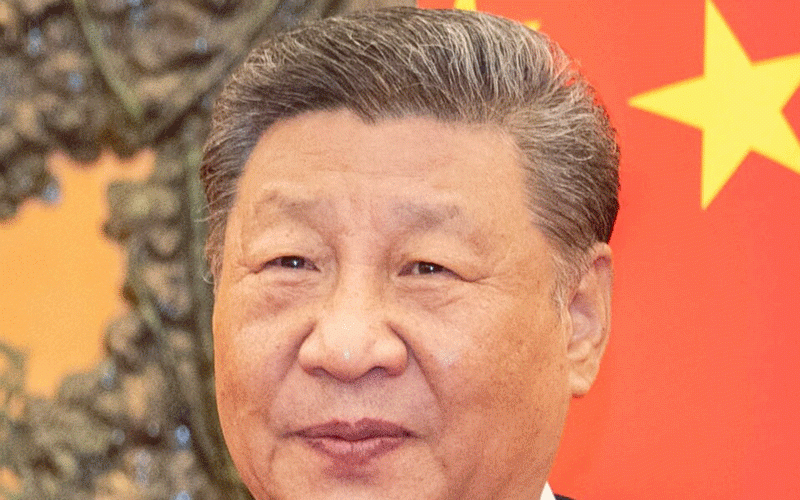
When your stars align well, journalism can give you fame and fortune.
It does not happen all the time, but when it does, when the fame does set it in, it gives you a high and a rush that few professions can.
The high is like a drug, it consumes you and all you want is your next hit.
It’s highly addictive.
One minute, you are hobnobbing with government officials, the other with business executives and the next with celebrities, who all defer to your wisdom.
From gossip, inside details and scoops, a journalist who has struck fame can literally have the world eating from the palm of his or her hands.
The adrenaline rush of moving from one deadline to the next and the thrill of “putting the paper to bed”, it is quite intoxicating and difficult to explain.
The only problem is that fame does not last forever, and like drugs, the withdrawal symptoms can be punishing.
- Editor's memo: Gukurahundi: Time for restorative justice
- Gukurahundi closure needs sincerity, maturity and solemnity
- Zapu to contest in 2023 polls
- Zapu, Zipra jointly fight for seized properties
Keep Reading
The people that once adored you, suddenly stop calling you and you become an afterthought.
While still respected, you no longer have the name capital and the brand visibility that you once had and that can make you feel like an outcast.
In his last book, the journalist as an outcast, the late journalist Geoffrey Nyarota seems to have gone through it all — the fame and the highs, as well as the lows and the feeling of being a forgotten outcast.
This is not an obituary and neither is it a critique of the autobiography, but rather an inquisition of the highs that journalism gives journalists and the withdrawal symptoms that come with it and whether media personnel are prepared to handle it.
Nyarota, once a high flying editor, who reminded all and sundry that at its peak the Daily News sold 120 000 copies, once drove in bulletproof cars but in the end he was reduced to the mercy of questionable characters like Wicknell Chivayo.
One of the issues that struck me throughout his book is that I do not think Nyarota came to terms with his reduced stature in the media industry after his return from the United States of America.
The loss of the editorship of the Daily News rocked his boat, but he thought he would bounce back as he did before.
After being fired from his job, Nyarota went to America where he had received a fellowship at one of the world’s top universities.
But that is not the same with journalism, it does not give you the same rush and lacks the excitement that drives media people.
The high is not the same and the urge for another hit is strong.
In no time, Nyarota soon launched an online platform.
But again, it was not the same as being back in Zimbabwe, where he would have been the face of it all, there was something romantic about returning home and fighting for change.
So, when he got an offer to return home from ANZ he took it with both his hands, but he failed to ask critical questions, and attend to pertinent issues which would soon haunt him.
His moment had arrived, or so he thought.
However, during his brief sojourn in America, the Zimbabwean journalism landscape had changed, a change I do not think he was quite prepared for.
Not just the journalism sector, the politics had changed too and Nyarota may even have been more ill-prepared for that.
A few short years earlier, Nyarota had a direct line to the leader of the MDC-T, Morgan Tsvangirai, at a time when the opposition and the governing Zanu PF had an adversarial relationship.
But now, Tsvangirai was in a unity government with Zanu PF’s Robert Mugabe and there was a cease in hostilities.
So when Tsvangirai travelled to America, Nyarota thought he would count on his old relations with the MDC-T leader and score an interview.
But to his disappointment, Tsvangirai and his team could not be bothered.
That was a slight, I think, he failed to deal with.
Like Fox News’ Roger Ailes, who propped up America’s Donald Trump, Nyarota had fought in Tsvangirai’s corner for years.
Being snubbed like that must have been insulting.
When Nyarota finally got hold of Tsvangirai, who was now in Europe, he asked him about Arikana Chihombori, who had been seen on the MDC-T leader’s side at the swearing in of Jacob Zuma as South Africa’s president.
Tsvangirai curtly asked if this was the reason Nyarota had called and hung up the phone before the journalist could put in another word.
That was literally the end of the relationship between the two.
From there, the book becomes a roll-call of people that had deserted Nyarota, who had forgotten his role in Zimbabwe’s journalism and who owed him a sliver of gratitude.
The list is quite long – from Jethro Goko at ANZ who allegedly embellished his profile in Zimbabwean journalism, Strive Masiyiwa, the Econet supremo who allegedly refused to pay out Nyarota’s severance package, to Sam Sipepa Nkomo, the ANZ executive who ushered him out and to Jonathan Moyo, a former Information minister.
On his return from America, Nyarota picks up more enemies than he makes friends, he lurches from one expensive lawsuit to the next and in the end he feels isolated or as an outcast, as he describes himself in the autobiography.
He had a bone to chew with all these people, fair enough, but he opened too many flanks and that left him badly exposed and in financial ruin.
But that did not stop him from chasing the next high, he still wanted the thrill that journalism had given him, but the avenues were fewer and increasingly more crowded.
His next foray was into politics, ironically, as a member of the MDC-T led by the same Tsvangirai that had snubbed him in America, hung up on him and had actively tried to avoid him at a wedding.
There was only one way this would end — in tears. And so it did.
Nyarota lost the MDC-T primaries and that added a new name to his roster of people that wronged him — Nelson Chamisa, who was the party’s secretary-general at the time.
In the end, he contested the 2013 elections as an independent and again he lost.
From there, he continued chasing the high that journalism had once offered him, but it was never the same.
Nobody came knocking on his door to ask him to be the editor of the next big paper or to come up with the next big idea and that must have felt like a punch in the gut.
No matter how many times he reminded the world of his exploits at Daily News, there were no calls to him.
In the end, Nyarota tries to retrace his steps, ironically to the same people that he blamed for his penury seeking for assistance, but too many bridges were burned.
His cry for help was either ignored or not loud enough.
It might be a little harsh, but sometimes his chase for his next high might have been a little self-destructive.
It would be fair to say that he was addicted to the thrills and the highs, but the lows that come with addiction went unattended to.
For some, he was a doyen of Zimbabwean journalism, for others his record on reporting on the Gukurahundi massacres will always be a blemish on his record.
But for Nyarota, I do not think he went out on the high that he thought he would or at least deserved.










